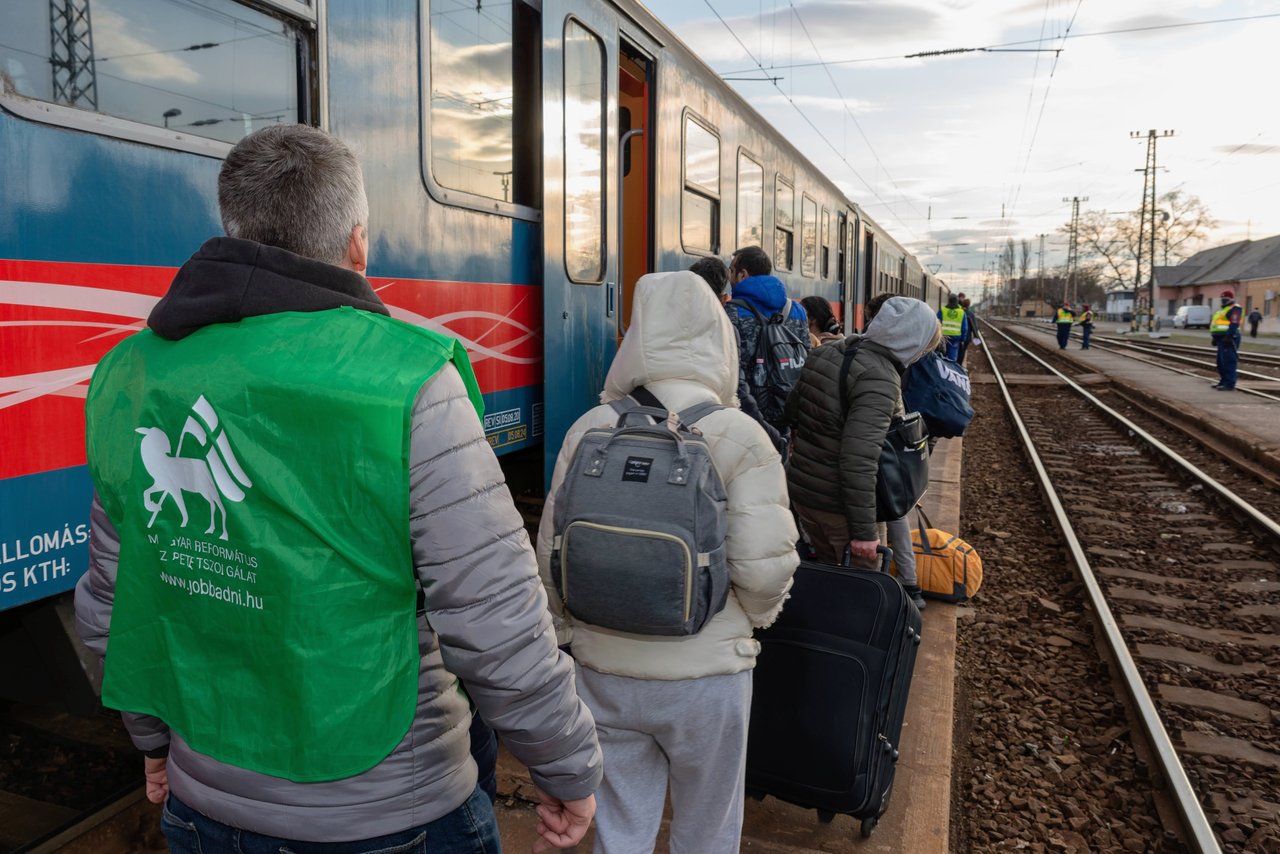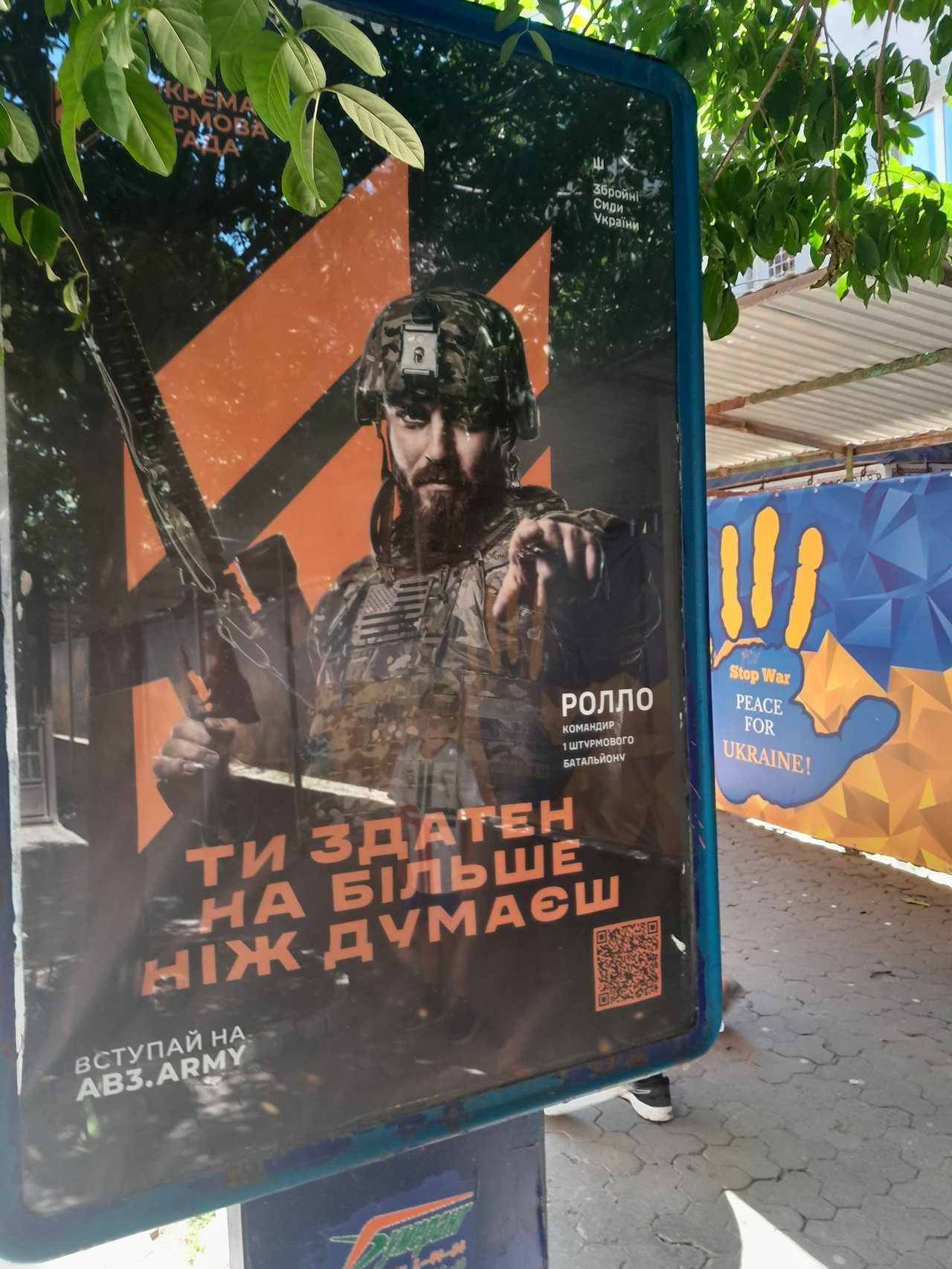“Reserves are dwindling both spiritually and physically; women left at home are facing more and more tasks, families are torn apart, and peace is still a long way off,” - this is how the Reformed people of Transcarpathia sum up their current situation. On the second anniversary of the outbreak of the Russian-Ukrainian war, we spoke to József Sipos, a pastor from Transcarpathia, and Erika Gál, the director of the Nagydobrony Reformed Lyceum, about their experiences, hope and new beginnings.
"The years of war count twice," Kálmán Mikszáth once wrote, and although his context was different, all those who live in Transcarpathia feel it today. Exactly two years ago to the day, the war began in our neighbouring country, which has taken its toll ever since, and for the end of which so many of us are praying.
Many have had to leave the country, and there are fewer people living in Transcarpathia than there were two years ago. But those who remain are trying to defy the hardships of war and do their best to stay. The Reformed community is no exception to this, and even in this unusual situation, they are looking for points of contact.
A year dedicated to ’renewal’
"The situation in Transcarpathia is becoming more and more difficult, and we feel that it is even more challenging now than it has been so far," says József Sipos, pastor of Tiszakeresztúr. He says Ukrainian regulations on mobilisation are increasingly restricting the scope for manoeuvre and making everyday life more difficult. As a result, those who stayed at home and are conscripted, but have been allowed to move around, are now being forced to register. "This makes the situation even more hopeless; it is becoming increasingly difficult to tolerate the divisions and the lack of peace after the past years," he continues. “Nevertheless, our people are persevering, believing that our God will provide and keep us."

The Reformed Church in Transcarpathia declared 2022 as the Year of Thanksgiving, and the theme of the year was not changed after 24 February 2022. "We always have something to give thanks for, we have tried to live it. At the same time, it became clear that next year should be a year of hope. By then, we felt that our reserves were running out, and we needed hope both individually and collectively," recalls József Sipos. We all know by now that the year 2023 did not bring the end of the war, so this year is the year of renewal for the Reformed in Transcarpathia. "Sometimes we hope, we feel that we have reached our human limits, but what we expect does not come. The world war did not end in a year, and the prisoners of the Stalinist camps did not return in a year. But just because the time has not yet come does not mean that God is not at work. That is why we felt that we must now pray for renewal."
"After all this time, we need to be renewed, to come up from under the water and take a deep breath. To do this, we invoke the Spirit of God," he adds. In this spirit, the members of the congregations hope that they will be able to hold all the community occasions and continue to hope that a time of peace will come. "It's not just a word, we can already feel God's grace renewing itself on us day by day," confesses József Sipos.
Prepared for the future
“Settlements and institutions from which men have been forced to disappear; a permanent state of transition; expanded tasks” Erika Gál, director of the Nagydobrony Reformed Lyceum, already reports. "The day the war started, we had to make a quick decision. The day the war broke out, we had to evacuate the school and prepare dormitory accommodation for the refugees. Almost immediately, life at the school was transformed, and we knew that the men would have to leave the country before the border was closed. At the time, we hoped that things would soon get back to normal."
Most of the teachers left the school, leaving 22 of the 53 staff - all women - to settle in for the new situation. "Besides teaching, we were constantly receiving refugees who arrived, some staying for just one night, but one family of seven, for example, lived in the dormitory for months. At the same time, I must say that God has helped us; the number of students in public schools is decreasing, while ours is constantly increasing," she recalls.
One of the reasons for this is that the church lyceums in Transcarpathia are currently a kind of intermediate state between schools and children's homes - so they have become responsible for taking in children whose parents are no longer in the country and have been entrusted to the care of grandparents or relatives. "Education is still at a high level, dormitory life has changed, and we now have children from the age of 10. We have to keep evolving to cope with this situation, but it is as if God prepared us for this: in 2014, I became director, and then we had the opportunity to expand the institution with the help of a Hungarian state grant. We had 110 children, and today, we have 208 children and 135 in the dormitory. I believe the Lord knew that we would need more places, and we are currently the largest church lyceum in Ukraine."

War poster in Transcarpathia
"We shall be able to cope with the challenges."
For Erika Gál and her husband, the past two years have been difficult in their personal lives: when the war broke out, their son was about to graduate, and afterward he managed to come to Hungary and find a job in his profession. "My husband and my son had not been able to meet for a year and a half, and finally had the opportunity to do so last year, during a donation delivery, which gave me the strength to continue," she recalls. “As we learn, there are many people in a similar situation; unfortunately there is no opportunity for parents and children, husbands and wives to meet,” Erika Gál says, “the men who stayed at home almost feel like prisoners, but it is also true that in most settlements it is mainly women who are left.”
It is a common experience that it is difficult to stay, but those who have chosen to do so try to persevere and look forward to meeting the emigrants. "It seems like a lot more than two years; sometimes it's hard to articulate what gives hope. But I think it's mostly what my grandparents experienced: they held on, we have to hold on," says Erika Gál, "They took the plunge after the war and the Malenky robot, and I believe we can start again. We have a strong core left at home, and we will be able to stand our ground."
Originally published on the website of the Transtibiscan Reformed Church District (Debrecen)
"The nation lives in church and school"
We talked to Sándor Fábián Zán, Bishop of the Hungarian Reformed Church in Transcarpathia (KRE), candidate of the 2022 elections. Among other things, he talked about the past 16 years of his term as Bishop, his current life situation, the present and the future of the Reformed Church.